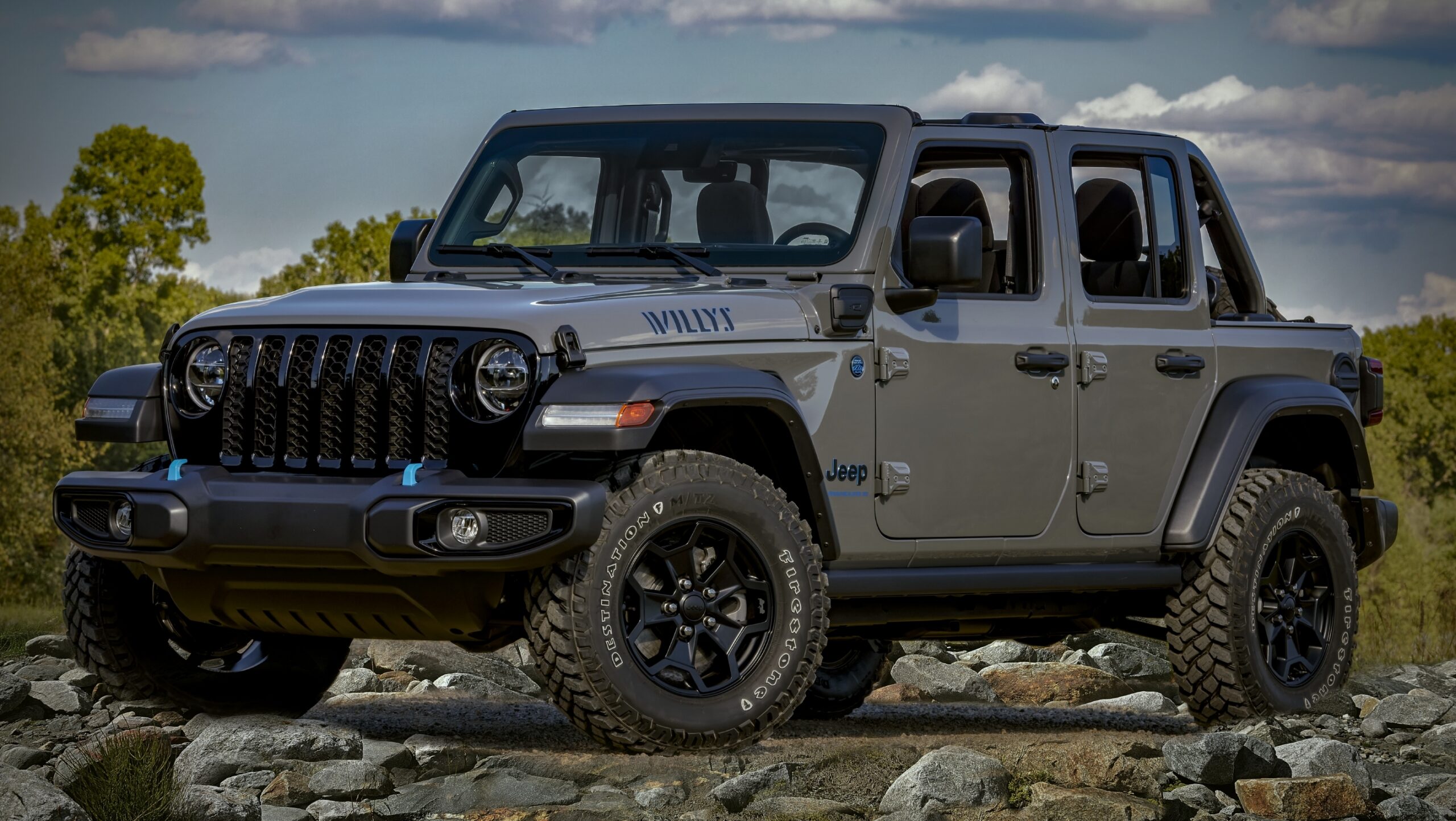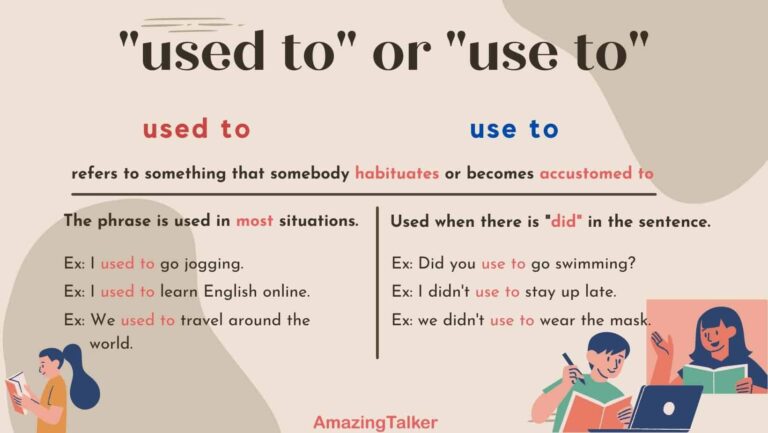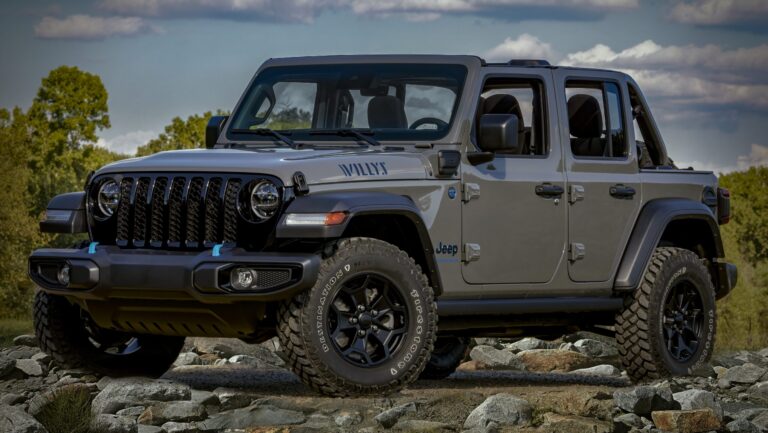Jeep Grand Cherokee Rims: The Ultimate Guide to Enhancing Your Ride
Jeep Grand Cherokee Rims: The Ultimate Guide to Enhancing Your Ride jeeps.truckstrend.com
The Jeep Grand Cherokee is renowned for its blend of rugged capability, sophisticated comfort, and undeniable presence. Whether you’re navigating city streets, embarking on a cross-country adventure, or conquering challenging off-road trails, your Grand Cherokee is built to perform. Central to this performance and its distinctive aesthetic are its rims. Far more than just decorative elements, Jeep Grand Cherokee rims are critical components that influence everything from handling and ride quality to safety and fuel efficiency. Choosing the right set of rims can dramatically transform your vehicle’s appearance and driving dynamics, making it a truly personalized extension of your lifestyle.
This comprehensive guide delves into everything you need to know about Jeep Grand Cherokee rims, helping you make informed decisions to optimize your vehicle’s performance and style.
Jeep Grand Cherokee Rims: The Ultimate Guide to Enhancing Your Ride
Understanding Jeep Grand Cherokee Rims: The Foundation
Rims, often interchangeably called wheels, are the structural foundation upon which tires are mounted. They connect the tire to the vehicle’s axle, transferring power from the engine to the ground. For a vehicle as versatile as the Grand Cherokee, the design and specifications of its rims are meticulously engineered to balance its dual nature as a luxury SUV and a capable off-roader.
A rim consists of several key elements:
- Barrel: The main circular part that holds the tire.
- Face/Spokes: The visible part of the rim, defining its aesthetic.
- Hub Bore: The center hole that fits over the vehicle’s hub.
- Bolt Pattern: The arrangement and number of bolt holes that secure the rim to the vehicle (e.g., 5x127mm or 5×5 inches for most Grand Cherokees).
- Offset: The distance from the rim’s mounting surface to its true centerline, dictating how far the rim sits in or out relative to the fender.
![]()
Key Specifications and Considerations When Choosing Rims
Selecting the perfect rims for your Grand Cherokee requires understanding several critical specifications to ensure proper fitment, performance, and safety.
1. Size (Diameter & Width)
- Diameter: Measured in inches (e.g., 17", 18", 20", 22"). Grand Cherokees typically come with OEM rims ranging from 17-inch on base models to 20-inch or even 22-inch on performance trims like the SRT or Trackhawk. Larger diameters often allow for larger brakes and offer a more aggressive look, while smaller diameters with larger tire sidewalls can improve ride comfort and off-road capability.
- Width: Measured in inches (e.g., 7.5", 8", 9"). The rim width must match the recommended width range for your chosen tire to ensure proper bead seating and tire performance.
2. Bolt Pattern
This is non-negotiable for fitment. Most modern Jeep Grand Cherokees utilize a 5x127mm (or 5×5 inch) bolt pattern. This means there are five lug holes, spaced on a 127mm circle. Using a rim with an incorrect bolt pattern is dangerous and will not fit.
3. Offset & Backspacing
These two measurements determine the rim’s position relative to the fender and suspension components.
- Offset:
- Positive Offset: The mounting surface is towards the front (outside) of the rim. This pulls the rim further inward towards the vehicle. Common for front-wheel-drive cars and some SUVs.
- Negative Offset: The mounting surface is towards the rear (inside) of the rim. This pushes the rim further outward from the vehicle, often seen on off-road vehicles for a wider stance.
- Zero Offset: The mounting surface is perfectly centered with the rim.
Choosing the wrong offset can lead to rubbing issues with fenders or suspension, affecting handling and safety.
- Backspacing: The distance from the inner edge of the rim to the mounting surface. It’s directly related to offset and is another way to ensure clearance.
4. Material
- Alloy (Aluminum): The most common choice for Grand Cherokees. Alloy rims are lightweight, which reduces unsprung weight (improving handling, acceleration, braking, and fuel efficiency), and they dissipate heat well. They are typically manufactured through casting or forging.
- Cast Alloys: Molten aluminum is poured into a mold. They are more affordable but generally heavier and less strong than forged.
- Forged Alloys: A solid block of aluminum is pressed into shape under high pressure. This process creates a denser, stronger, and lighter rim, but at a higher cost.
- Steel: Heavier and less aesthetically diverse than alloy rims, but they are incredibly durable, less prone to cracking (more likely to bend), and significantly cheaper. Often preferred for extreme off-roading where durability is paramount, or for winter tire setups.
5. Finish
The finish affects aesthetics and durability against elements. Common options include:
- Painted: Most common, offering a vast array of colors. Can be clear-coated for protection.
- Machined: A polished metal look, often with clear coat.
- Chrome: A highly reflective, mirror-like finish, though prone to pitting if not maintained.
- Polished: Similar to machined but taken to a higher sheen.
- Powder-Coated: A durable, chip-resistant finish applied electrostatically and baked on. Excellent for protection.
- PVD (Physical Vapor Deposition): A newer, more durable alternative to traditional chrome, lighter and more environmentally friendly.
6. Load Rating
Crucial for a vehicle like the Grand Cherokee, especially if you plan to tow or carry heavy loads. Ensure the rim’s load rating exceeds the vehicle’s gross axle weight rating to prevent structural failure.
Types of Rims for Your Grand Cherokee
The aftermarket offers an incredible array of options to suit every Grand Cherokee owner’s needs and tastes.
- OEM (Original Equipment Manufacturer) Rims: These are the rims that come standard on your Grand Cherokee or are offered as factory upgrades. They are guaranteed to fit and meet Jeep’s quality standards.
- Aftermarket Performance Rims: Designed to enhance driving dynamics, these are often lighter forged alloys or specialized cast rims that improve handling, braking, and acceleration by reducing unsprung weight. They may also be stronger for demanding driving.
- Luxury/Custom Rims: Focused primarily on aesthetics, these rims come in unique designs, finishes, and larger diameters to give your Grand Cherokee a distinctive, high-end look.
- Off-Road Rims: Built for extreme durability, these are often steel or heavy-duty alloy rims. Some feature beadlock technology (or "beadlock-capable" designs) that mechanically clamps the tire bead to the rim, preventing the tire from detaching at very low air pressures used for off-roading. They prioritize strength and functionality over lightweight design.
Benefits of Upgrading Your Grand Cherokee Rims
Investing in new rims for your Grand Cherokee offers a multitude of advantages beyond just a fresh look:
- Enhanced Aesthetics & Personalization: This is often the primary motivator. New rims can dramatically alter your vehicle’s stance and curb appeal, making it truly unique.
- Improved Performance: Lighter rims reduce unsprung weight, leading to:
- Better acceleration and braking response.
- Improved handling and steering feel.
- Potentially minor improvements in fuel economy.
- Optimized Ride Quality: While larger rims with lower-profile tires can sometimes lead to a stiffer ride, choosing the right size and tire combination can also fine-tune your ride quality for comfort or sportiness.
- Increased Durability & Capability: For off-road enthusiasts, stronger, purpose-built rims can withstand the rigors of challenging terrain better than standard options.
- Tire Compatibility: Upgrading rims can open up a wider range of tire options, allowing you to choose specialized tires for specific driving conditions (e.g., aggressive mud-terrains, performance street tires).
Choosing the Right Rims: A Practical Guide
Navigating the vast world of aftermarket rims can be daunting. Here’s a step-by-step approach to help you make the best choice:
-
Define Your Primary Use:
- Daily Driver/Commuter: Focus on comfort, durability, and aesthetics. OEM or quality aftermarket cast alloys are great.
- Off-Roader: Prioritize strength, impact resistance, and possibly beadlock compatibility. Steel or robust forged alloys are ideal.
- Performance Enthusiast (SRT/Trackhawk): Seek lightweight forged rims that can handle high speeds and performance tires.
- Luxury/Show Vehicle: Aesthetics, unique designs, and premium finishes will be key.
-
Know Your Vehicle’s OEM Specifications: Understand the stock rim size, width, offset, and bolt pattern for your specific Grand Cherokee year and trim. This provides a baseline for comparison.
-
Consider Tire Compatibility: Your chosen rim size dictates compatible tire sizes. If you plan to change tire size, ensure it clears fenders, suspension components, and doesn’t negatively impact speedometer accuracy or ABS/ESP systems.
-
Set a Realistic Budget: Rim prices vary widely based on material, manufacturing process, brand, and finish. Have a budget in mind for both the rims and potentially new tires, TPMS sensors, and installation.
-
Consult Reputable Dealers/Installers: Seek advice from experienced wheel and tire specialists. They can offer insights into fitment, brand quality, and common issues for Grand Cherokees.
-
Read Reviews and Research Brands: Look for brands known for quality and durability. Check owner forums and reviews for feedback on specific rim models on Grand Cherokees.
-
Visualize the Look: Many online configurators allow you to virtually "try on" different rims on your Grand Cherokee model. This helps immensely with aesthetic decisions.
Installation and Maintenance Tips
Proper installation and regular maintenance are crucial for the longevity and performance of your Grand Cherokee rims.
Installation:
- Professional Installation Recommended: While seemingly straightforward, proper mounting, balancing, and torqueing are essential for safety and performance.
- Torque Specifications: Always ensure lug nuts are tightened to the manufacturer’s specified torque settings using a torque wrench. Re-torque after 50-100 miles.
- TPMS (Tire Pressure Monitoring System): If your Grand Cherokee has TPMS, you’ll need compatible sensors for your new rims. They can often be transferred from your old rims or new ones can be purchased and programmed.
Maintenance:
- Regular Cleaning: Clean your rims regularly with mild soap (car wash soap works well), water, and a soft brush or cloth. Avoid harsh acidic cleaners, especially on chrome or polished finishes, as they can damage the clear coat or material.
- Inspect for Damage: Periodically check for curb rash, bends, cracks, or corrosion. Minor curb rash can often be repaired, but structural damage requires professional assessment or replacement.
- Tire Pressure: Maintain correct tire pressure as recommended by your vehicle’s manufacturer (found on a sticker inside the driver’s door jamb). Incorrect pressure can lead to uneven tire wear and put undue stress on the rims.
- Rotation and Balancing: Follow your tire manufacturer’s recommendations for tire rotation and balancing to ensure even wear and smooth operation, which also helps preserve your rims.
Potential Challenges and Solutions
While upgrading rims is largely beneficial, be aware of potential hurdles:
- Rubbing/Clearance Issues: Incorrect offset or too large a tire size can cause rubbing against fenders, suspension, or brake calipers.
- Solution: Carefully research recommended sizes and offsets. A test fit (physical or virtual) can help. Sometimes minor fender rolling or a lift kit might be necessary for larger setups.
- TPMS Compatibility: As mentioned, ensure your new rims are compatible with TPMS sensors.
- Solution: Purchase new OEM-compatible sensors or have your existing ones transferred and re-calibrated by a professional.
- Warranty Concerns: Modifying your vehicle with aftermarket parts could potentially affect certain warranty claims related to the wheels or suspension, although unlikely for a reputable rim.
- Solution: Consult your dealership if you have concerns. Generally, aftermarket parts only void the warranty if they directly cause the failure.
- Cost: Quality rims are an investment.
- Solution: Set a realistic budget and consider the long-term value in terms of durability, performance, and aesthetic enhancement. Don’t compromise on safety for a lower price.
Price Table: Estimated Jeep Grand Cherokee Rims
Prices for Jeep Grand Cherokee rims vary significantly based on material, brand, design complexity, finish, and size. The following table provides general estimated price ranges per rim.
| Rim Type / Material | Size Range (Diameter) | Finish Examples | Estimated Price Range (Per Rim) | Key Characteristics |
|---|---|---|---|---|
| OEM Replica Alloy | 17" – 20" | Silver, Black, Machined | $150 – $350 | Direct fit, factory look, good value. |
| Aftermarket Cast Alloy | 18" – 22" | Various Painted, Machined, Chrome | $200 – $600 | Wide variety of styles, good balance of cost/weight. |
| Aftermarket Forged Alloy | 20" – 24" | Custom Painted, Polished, PVD | $500 – $1500+ | Lightweight, strongest, premium performance/aesthetics. |
| Heavy-Duty Off-Road Steel | 17" – 18" | Black, Silver | $100 – $250 | Most durable, heaviest, best for extreme off-roading. |
| Beadlock-Capable Alloy | 17" – 18" | Satin Black, Bronze | $300 – $700 | Designed for extreme low pressure off-roading, rugged look. |
| Premium Luxury Alloy | 22" – 26" | Chrome, Custom Finishes, Multi-Piece | $800 – $2500+ | High-end aesthetics, often custom-made, ultimate statement. |
Note: Prices are estimates and can vary based on brand, retailer, specific design, and market conditions. Installation, tires, and TPMS sensors are typically separate costs.
Frequently Asked Questions (FAQ) About Jeep Grand Cherokee Rims
Q1: What is the bolt pattern for most Jeep Grand Cherokees?
A1: Most modern Jeep Grand Cherokees use a 5x127mm (or 5×5 inch) bolt pattern. It’s crucial to confirm this for your specific model year.
Q2: Can I put larger rims on my Grand Cherokee?
A2: Yes, within limits. Many Grand Cherokee owners upgrade to larger diameter rims (e.g., 20" to 22"). However, you must consider tire size, offset, and potential rubbing issues with fenders or suspension. It’s always best to consult a wheel and tire specialist.
Q3: Will changing my rims affect my ride quality?
A3: Yes. Larger diameter rims often require lower-profile tires, which have less sidewall cushioning, potentially leading to a stiffer ride. Conversely, smaller rims with taller tire sidewalls can improve ride comfort. The type of tire also plays a significant role.
Q4: Do I need new TPMS sensors when I get new rims?
A4: You have a few options. You can often transfer your existing TPMS sensors to the new rims, or you can purchase new compatible sensors. New sensors will need to be programmed to your vehicle.
Q5: How do I clean my Grand Cherokee rims effectively?
A5: Use a mild car wash soap and water with a soft brush or sponge. For stubborn brake dust, use a dedicated wheel cleaner specifically labeled as safe for your rim’s finish (e.g., "acid-free" or "pH neutral"). Always rinse thoroughly and dry to prevent water spots.
Q6: What’s the difference between cast and forged rims?
A6: Cast rims are made by pouring molten metal into a mold, making them more affordable but generally heavier and less strong. Forged rims are made by pressing a solid block of metal under high pressure, resulting in a denser, lighter, and significantly stronger rim, but at a higher cost.
Conclusion
Jeep Grand Cherokee rims are much more than just a cosmetic upgrade; they are a fundamental component influencing your vehicle’s performance, safety, and overall character. By understanding the critical specifications, exploring the diverse types available, and considering your driving needs, you can select the perfect set of rims to complement your Grand Cherokee. Whether you prioritize rugged durability for off-road adventures, lightweight performance for spirited driving, or unparalleled luxury for head-turning aesthetics, the right rims will unlock your Grand Cherokee’s full potential and ensure it truly stands out on any road or trail. Make an informed choice, invest wisely, and enjoy the enhanced ride and distinctive style that custom Jeep Grand Cherokee rims bring.



